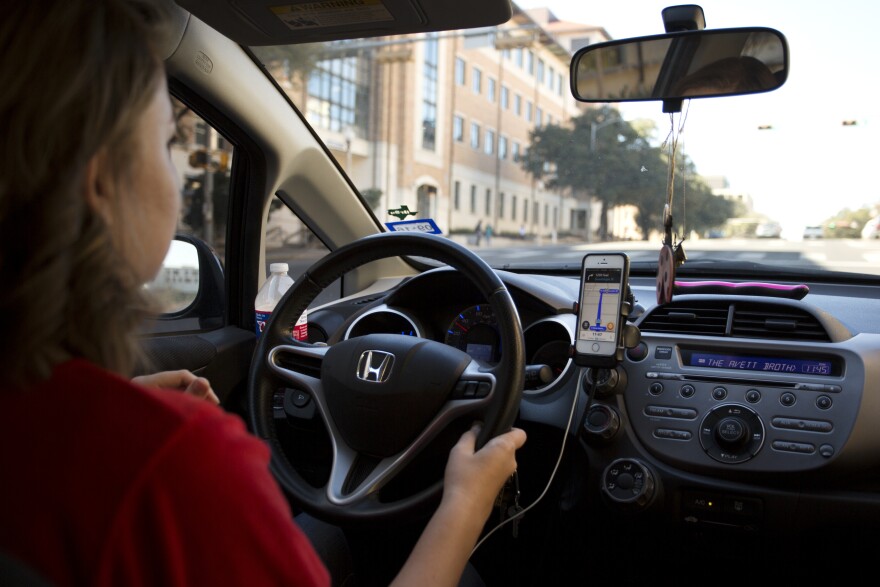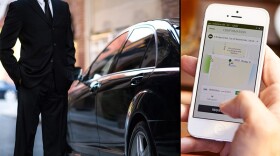Recently, local political action committee Ridesharing Works for Austin hired two Republican campaign veterans – Reed Galen and Travis Considine. Between them, they’ve worked on campaigns for John McCain, George W. Bush and Rick Perry.
And in what feels like the same breath, the Travis County Democratic Party formally took a stance in opposition of Proposition 1, the ride-hailing regulations proposed by Ridesharing Works for Austin as an alternative to those passed by the city. The regulations were submitted by petition in January.
It’s a discussion that would seem to fall naturally along party lines. First, there is the storied tale of government regulation. Republicans do not want it. Democrats are OK with some.
But Joe Deshotel, communications director with the Travis County Democratic Party, says there is more to it.
“We passed a resolution opposing this proposition based on the idea that companies should not be able to self-regulate and run a campaign if they don’t get their way by actually working with stakeholders and the City Council we elected to represent us,” he told the Austin Monitor while standing atop a Sixth Street rooftop bar after a Ridesharing Works for Austin press conference.
Democratic Party Chair Vincent Harding expressed a similar sentiment in the official resolution. “This election is not about whether Uber should be in Austin or whether we want Uber in Austin,” he wrote. “This election is about Uber trying to write its own regulations. Uber has not been elected. Uber writing its own regulations will not happen on my watch.”
As Deshotel explained it, the local party sees its opposition against Proposition 1 as a stance against the ruling in Citizens United v. Federal Election Commission – the Supreme Court case decided in 2010 that nixed government restrictions on corporate spending in politics.

But Matt Mackowiak, vice chair of the Travis County Republican Party, said Uber and Lyft hardly represent the potential evils ascribed to corporations as a whole.
“Uber and Lyft, if anything, they employ tens of thousands of people in Austin,” he said. “And in a lot of cases it’s young people, it’s minorities, it’s people that need a second job or want to work part-time. Democrats talk about wanting to support opportunity for minorities and for young people. That’s exactly what Uber and Lyft are.”
Mackowiak also said that painting Uber and Lyft as all-powerful corporations belies the influence of local taxi companies, which he said have been funneling money into anti-Uber and -Lyft movements for years now. While taxi companies did contribute $4,000 to Council Member Ann Kitchen’s campaign, those with the anti-Prop 1 campaign say they have yet to receive money from taxi companies.
“I hope we do get some,” said local political consultant David Butts, who is involved with anti-Prop 1 campaign Our City, Our Safety, Our Choice. He said the campaign could use the help. “If the taxi companies put any money in, it’ll be such a small drop in the bucket. Compared to what these people (Uber and Lyft) are putting in (to the Prop 1 campaign), it’ll hardly be noticeable.”
Yet, despite the fact that it seems as if most every issue can turn into a partisan brawl, those involved with both sides of the ride-hailing debate have said it crosses party lines – and that party associations are of no concern to them.
“They could hire my best friends to run the Prop 1 campaign, and I’d be opposed,” said Fred Lewis, a local attorney who is holding a fundraiser for the anti-Prop 1 campaign.
When asked if hiring people heavily entrenched in the Republican Party to run a campaign in a city made up predominantly of Democrats was a mistake, Lewis said probably not. “I don’t think it’s going to change the public’s mind who they hire,” he said.
According to Ridesharing Works for Austin, the leadership should not subtract from what is, and has always been, a blending of parties in support of Prop 1.
Huey Rey Fischer, former candidate for House District 49 and self-proclaimed liberal Democrat, is now the PAC’s deputy outreach director. He recently counted off a list of other notable Democrats involved with Ridesharing Works for Austin.
“We have Pedro Villalobos, who recently worked for (Constable) Sally Hernandez (Travis County sheriff candidate). We have Patrick McDonald, who recently worked for Brad Urrutia (candidate in 450th District Court judicial race). We have Joe Bowen, who recently worked for Jan Soifer (345th Civil District Court). All of those are Democrats who run their elections here in Travis County,” he said.
Fischer said, as both sides have, that public safety is at the heart of this campaign. Those who support Prop 1 say Uber and Lyft keep drunk drivers off the roads, while those who oppose Prop 1 say the fingerprint-based background checks sought by Council (but opposed by the ride-hailing companies) would ensure passenger safety.
Both sides also meet on the concern for voter turnout in the May 7 election that will decide Prop 1’s fate: Holding a Saturday election in a state with notoriously low voter turnout will be a challenge.
This story was produced as a part of KUT's reporting partnership with the Austin Monitor.







